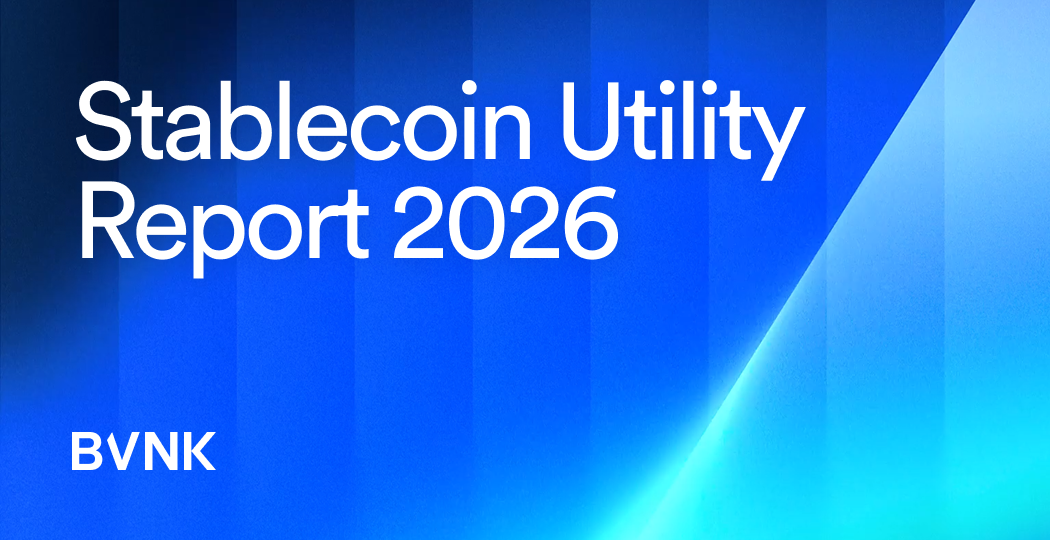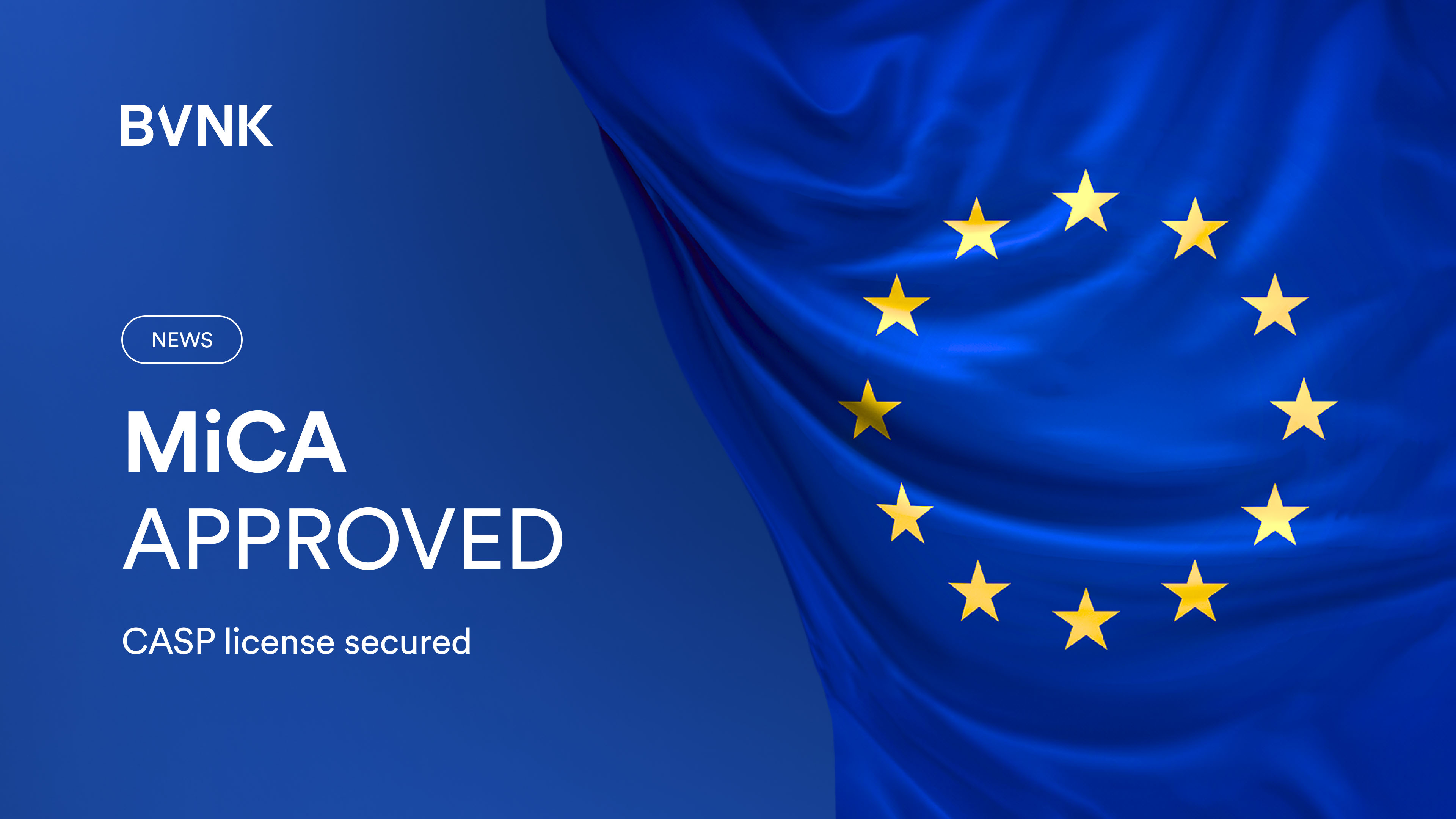Best cryptocurrency payment gateways for international business (2025)
A guide to cryptocurrency payment processors in 2025.
Introduction
In 2025, global crypto payment volumes exceeded $8 trillion, yet most businesses still struggle with slow settlements, regional licensing gaps, and clunky crypto checkout experiences.
The right crypto payment gateway solves these problems - enabling instant global settlement, multi-jurisdiction compliance, and seamless fiat integration. But the wrong choice means leaving money on the table.
The stablecoin advantage: Leading enterprises are integrating stablecoin infrastructure to unlock new revenue streams and reduce costs. By offering crypto and stablecoin payment options at checkout, merchants can tap into higher-spending customer segments with greater purchasing intent, expand into emerging markets where traditional banking infrastructure falls short, and benefit from lower transaction fees compared to conventional payment rails.
Here are 4 of the best stablecoin payment gateways in 2025.
Quick comparison: 4 best stablecoin payment gateways
- BVNK sets the standard for enterprise-scale stablecoin payments, with over $25 billion annual volumes, 25+ global licenses serving businesses across 130+ markets.
- Triple A serves Asia-Pacific through its Singapore MPI license.
- Stripe provides a convenient on-ramp for mainstream enterprises to trial stablecoin payments, but limited regional and stablecoin rollout make it less suited to complex, multi-jurisdiction operations.
- CoinsPaid focuses on gaming and crypto-native merchants, supporting 20+ assets.
Keep reading to discover in detail what each one is best suited for, and how they compare for international enterprise use cases.
1. BVNK: Best for enterprise-scale international payments
BVNK provides enterprise-grade infrastructure for businesses that need to move money seamlessly between fiat and stablecoins at scale. Unlike providers built for retail adoption or specific regional markets, we combine global licensing, multi-token and chain support, best-in-class user experience, and fast, compliant settlement.
Key features:
- Over $25 billion in annualized payment volumes across fiat and crypto, demonstrating proven capacity for large-scale enterprise use. Billions in annual stablecoin pay-ins.
- 25+ global licenses and approvals (serving businesses across 130+ markets.
- Trusted by enterprises such as Deel, Worldpay, Rapyd, Thunes, dLocal, Xapo Bank, Ferrari.
- Virtual accounts in USD, EUR and GBP enable faster, simpler fiat on/off-ramps for global clients.
- Stablecoin and crypto pay-ins and payouts across multiple blockchains and tokens, supported by an in-house trading engine and deep banking network, ensure speed and reliability.
- Optimized checkout experience available in multiple languages, with wallet connectivity, wrong-chain correction, and ability to set 1:1 conversion rates, boosting payment completion and minimizing errors.
Limitations for enterprises:
- BVNK is expanding its feature set to include recurring billing Instant refunds support are being piloted with selected enterprise clients.
Verdict:
BVNK ranks as the best overall crypto payment gateway for international businesses using crypto payments, combining best-in-class user experience, strong conversion performance with global regulatory coverage and proven scale.
We offer a licensed and scalable infrastructure for enterprises managing fiat and stablecoin payments across global markets. We process more than $25 billion in annual volume and operate under 25+ licenses covering over 130 jurisdictions.
BVNK also performs strongly on payment completion. By keeping the process simple and removing extra steps, we help businesses finish more payments and capture more of the revenue already in motion.
2. Triple A: Best for Asia-Pacific market entry
Triple A is a Singapore-based payment gateway focused primarily on the Asia-Pacific and MENA regions. The company supports key cryptocurrencies (Bitcoin, Ethereum, USDT, USDC, and Binance Pay) and offers crypto-to-fiat conversion with payouts to multiple fiat currencies.
Key features:
- Strong Asia-Pacific presence with Singapore MPI license and regional market expertise.
- Instant crypto payment processing with 13-language payment page support.
- Low merchant fees with competitive crypto-to-fiat conversion rates from Kraken/Coinbase.
- Specialization in high-risk merchant categories often underserved by traditional processors.
- Support for Binance Pay integration (except in Singapore).
Limitations for enterprises:
- Regional licensing focused on APAC.
- No EMI authorization limiting virtual account capabilities.
- $1,000 minimum withdrawal threshold for fiat settlements.
- No cross-border payment infrastructure, OTC services or business banking capabilities.
Verdict:
Triple A serves businesses entering the Asia-Pacific market. Enterprises requiring global support, virtual account infrastructure, same-day fiat settlement without minimum thresholds, 24/7 support, and proven scale with international clients will find BVNK's platform purpose-built for global enterprise operations.
3. Stripe (Bridge): Best for adding stablecoins to existing Stripe infrastructure
Stripe has extended its global payments network into crypto, letting businesses accept and settle USDC stablecoin payments as easily as card transactions. It’s designed for enterprises that want to offer digital currency checkout or payouts without changing their existing payment stack. The solution treats stablecoin transactions like card payments - with authorization holds, refunds via smart contracts, and recurring subscriptions built in.
Key features:
- Support for USDC on Ethereum, Solana, Polygon, and Base, with automatic conversion to fiat.
- Works through Stripe Checkout, Payment Links, and API – no separate crypto integration required.
- Stablecoin accounts (via Bridge) let businesses hold, send, or receive USDC across 100+ countries.
- Enterprise-grade compliance, custody, and fraud protection built into Stripe’s infrastructure.
Limitations for enterprises:
- Only supports USDC.
- Regional availability is still expanding; some features remain in beta.
Verdict: Stripe offers mainstream enterprises a trusted path to add stablecoin without disrupting existing payment infrastructure - ideal for businesses already on Stripe.
However, Stripe has developed its stablecoin capabilities through several acquisitions (including Bridge for custody and stablecoin accounts), and is still integrating these pieces into a cohesive solution. In contrast, BVNK has built proprietary stablecoin infrastructure from the ground up: multi-stablecoin support, virtual accounts bridging fiat and crypto, purpose-built checkout features- all fully integrated.
4. CoinsPaid: Best for crypto-native gaming and digital asset operations
CoinsPaid is an Estonia-based crypto payment processor founded in 2014, serving over 800 merchants with a strong focus on the gaming vertical. The platform processes approximately €1 billion in monthly volume and handles 0.8% of global Bitcoin activity, with particular strength in gaming partnerships including SoftSwiss integration.
Key features:
- Strong gaming vertical specialization with high-risk appetite for gaming, forex, and real estate merchants.
- Support for 20+ cryptocurrencies and 40 fiat currencies for conversion.
- Competitive pricing with no monthly account fees, deposit/withdrawal fees, or hidden transfer charges.
- Multi-asset crypto wallet infrastructure with 4-eyes approval security concept.
- OTC desk for large transactions over €1 million.
Limitations for enterprises:
- No EMI license - cannot offer virtual fiat accounts; merchants must use their own bank accounts for settlements.
- Estonian VASP license.
- Crypto pay-ins only with no crypto or fiat payout capabilities beyond basic withdrawals..
- No cross-border fiat payment infrastructure or business banking capabilities.
Verdict: CoinsPaid serves crypto-native businesses in gaming and high-risk digital commerce verticals that operate primarily in cryptocurrency without requiring fiat banking integration. Enterprises with different requirements will find BVNK better suited: globally licensed, serving businesses across 130+ markets, comprehensive fiat and crypto payouts, and proven scale with companies like Deel, Worldpay, and Flywire.
Buying guide: what enterprises need in stablecoin payment infrastructure
Selecting the right stablecoin payment gateway shapes how efficiently your business accepts payments, manages cash flow, and meets regulatory requirements. For enterprises operating internationally, certain capabilities are non-negotiable.
Why businesses are adopting stablecoin payments
Stablecoin checkout solves critical pain points in cross-border commerce:
1. Global reach without banking dependencies
Stablecoins work in markets where traditional payment methods fail or are unreliable. No bank relationships required, no local payment processor setup needed. BVNK's infrastructure enables near-instant settlement even from emerging markets.
2. Instant settlement reduces risk
Even for transactions to and from emerging markets, stablecoin settlement is immediate. BVNK processes billions of dollars in stablecoin pay-ins annually with instant settlement, compared to 1-3 day card settlements or multi-day wire transfers.
3. Lower cross-border costs
Stablecoin transactions eliminate correspondent banking fees, FX markups, and international card interchange fees that can reach 3-5% for cross-border transactions.
Critical challenges in stablecoin checkout
Despite advantages, stablecoin payments face adoption hurdles that separate enterprise-grade providers from basic processors:
User experience friction
Traditional crypto checkout requires copying wallet addresses or scanning QR codes. Since blockchain payments are irreversible, mistakes are costly. BVNK solves this with wallet connectivity, wrong-chain payment correction, and the ability to set 1:1 currency conversion rates between stablecoins and USD.
Currency flexibility requirements
Merchants want to accept stablecoins but settle in traditional currencies (USD, EUR, GBP) to avoid accounting complexity. Providers like BVNK enable instant auto-conversion to fiat currencies.
Missing payment features
Current blockchain systems don't easily enable instant refunds, recurring subscriptions, or built-in consumer protections. BVNK is building world-first solutions in these areas to bring stablecoin checkout to parity with cards.
What enterprises must evaluate
1. Multi-jurisdiction licensing (non-negotiable for international operations)
Cross-border businesses need regulatory coverage across key markets.
What to look for:
- US Money Transmission Licences (MTLs) across multiple states.
- EU EMI authorization (e-money institution).
- Additional registrations in target markets (APAC, LATAM, etc).
- Strong AML/KYC processes with transaction monitoring.
BVNK advantage: Serving businesses across 130+ markets, and with regulatory approvals that provide comprehensive coverage for international expansion. What’s more, our single-vendor compliance reduces operational complexity when compared with regional providers that require multiple partnerships.
Why this matters: Operating without proper licensing exposes businesses to regulatory risk and limits market access. Regional providers may serve local markets but lack coverage for true international operations.
2. Proven scale and stablecoin expertise
Enterprise payment infrastructure must handle significant volume reliably with proven stablecoin-specific capabilities.
What to look for:
- Significant annual payment volumes (demonstrates infrastructure resilience).
- Significant stablecoin-specific volume (not just generic "crypto" processing).
- Growth metrics showing momentum (e.g. BVNK: 230% growth in stablecoin pay-ins).
- Enterprise client proof points (Deel, Worldpay, Flywire etc.)
BVNK advantage:
Over $25 billion in annual volumes with half in stablecoin pay-ins demonstrates both scale and stablecoin-native focus.
Why this matters: Providers with limited scale or generic "crypto" focus lack the infrastructure maturity and stablecoin-specific features enterprises require. Retail-focused or regional providers may not support enterprise volumes.
3. Fast fiat settlement with multi-currency support
Merchants accepting stablecoins often prefer settlement in traditional currencies to avoid volatility and accounting complexity.
What to look for:
- Multiple stablecoins and cryptocurrencies supported.
- Auto-conversion to your preferred fiat currency.
- Same-day fiat settlement for withdrawals (not 1-3 day batch processing).
BVNK advantage:
Accept multiple stablecoins or cryptocurrencies to meet the needs of your customers, automatically convert into named USD, EUR, and GBP virtual accounts in real time.
Why this matters:
Slow fiat settlement increases crypto exposure and impacts cash flow.
4. Purpose-built stablecoin checkout features
User experience plays a key role in payment conversion, meaning how many buyers complete a deposit or purchase once they start it. Traditional crypto checkouts often create friction that stops transactions before they finish.
What to look for:
- Wallet connectivity (seamless connection vs. lots of steps).
- Wrong-chain payment correction (automatic recovery if the customer pays on the wrong network).
- Transparent exchange rate display (customers see the exact rate between their stablecoin or crypto and local currency at checkout).
- Multi-token and multi-network support (customers can pay with their preferred option).
BVNK advantage:
BVNK’s checkout includes all these features as standard and is built specifically for stablecoin payments. This design reduces friction and helps more buyers complete their transactions.
Why this matters:
A smoother checkout experience directly increases the number of completed payments. BVNK’s purpose-built approach keeps the process simple, guided, and consistent, helping businesses capture more of the revenue already in motion.
5. Enterprise support and integration
At scale, dedicated support and seamless integration separate enterprise providers from SMB-focused platforms.
What to look for:
- Rapid deployment timeline via hosted payment page – fully optimized for conversion and available in multiple languages.
- Connect with existing systems - Integrates with systems like Payment IQ, Praxis Checkout, Bridgerpay, Premier cashier and Stratified.
- Get paid through any channel: Generate invoices and request payment via email, SMS, WhatsApp and other platforms.
- Dedicated account management.
- Enterprise SLAs with uptime guarantees.
- Comprehensive documentation and developer support.
BVNK advantage:
Hosted Payments Page enables rapid deployment of a battle-tested crypto checkout flow, including auto-conversion to fiat – without rebuilding infrastructure. Dedicated account management and enterprise SLAs support high-volume operations.
Why this matters:
Providers without enterprise-grade support increase time-to-market and operational friction. Regional or SMB-focused providers may lack the support infrastructure enterprises require.
The enterprise choice for stablecoin payments
Stablecoin payment gateways serve many use cases. Regional players serve specific geographic markets like Europe or Asia-Pacific. Crypto-native platforms suit businesses operating entirely in digital assets without fiat integration needs.
For international enterprises, the requirements are different. You need licensed providers across multiple jurisdictions , proven scale at enterprise volumes with fiat integration (not crypto-only infrastructure), purpose-built stablecoin checkout features (not basic crypto payment processing), fast fiat settlement (not crypto-to-crypto only), and enterprise-grade support with dedicated account management.
This is where BVNK stands apart.
BVNK is the most complete option for enterprises that need to bridge traditional and digital finance confidently at scale, globally licensed and serving businesses across 130+ markets, processing billions in annual volumes, offering a purpose-built checkout infrastructure, automatic conversion to fiat – with proven implementation for companies like Deel, Worldpay, and Flywire.
FAQs
What is a stablecoin payment gateway?
A stablecoin payment gateway enables businesses to accept payments in stablecoins (cryptocurrencies pegged to fiat currencies like USD). Enterprise-grade providers like BVNK handle conversion to traditional currencies, manage wallets, provide licensed infrastructure across multiple jurisdictions, and offer auto-conversion and instant fiat settlement.
How do I choose the best stablecoin payment gateway for my business?
For enterprises, prioritize: (1) multi-jurisdiction licensing (vs. regional coverage), (2) proven scale (ie over $20 billion annual volumes), (3) instant fiat settlement , (4) purpose-built stablecoin checkout (wallet connectivity, wrong-chain correction), and (5) enterprise support with SLAs and dedicated account management.
What fees do stablecoin payment gateways charge?
Most providers charge 0.5-2% per transaction. Watch for additional fees: currency conversion (up to 5%), withdrawals (0-1%), and FX spreads on fiat settlement. Enterprise-grade providers offer volume discounts. Always review the complete fee structure and settlement speed, as instant fiat settlement reduces volatility exposure.
Are stablecoin payment gateways regulated and secure?
Security and regulation vary significantly. Enterprise providers like BVNK operate under multiple licenses serving businesses across 130+ markets with strong AML/KYC processes and regular audits. Retail-focused, regional, or B2B2C providers may have limited licensing coverage. Always verify licensing in your target markets.
Can my business accept stablecoins but settle in fiat?
Yes. Enterprise-grade providers like BVNK enable businesses to accept stablecoins (USDC, etc.) while instantly converting to traditional currencies (USD, EUR, GBP).
Do stablecoin payment gateways support cross-border payments?
Yes. Stablecoins are inherently global and work in any market with internet access. However, licensing coverage varies significantly. Enterprise providers like BVNK hold licenses across multiple jurisdictions, serving businesses across 130+ markets to support compliant international expansion. Regional or retail-focused providers may only have single-region coverage, limiting your ability to operate globally without multiple vendor relationships.
Latest news
View allGet payment insights straight to your inbox







.avif)



.avif)
.avif)





